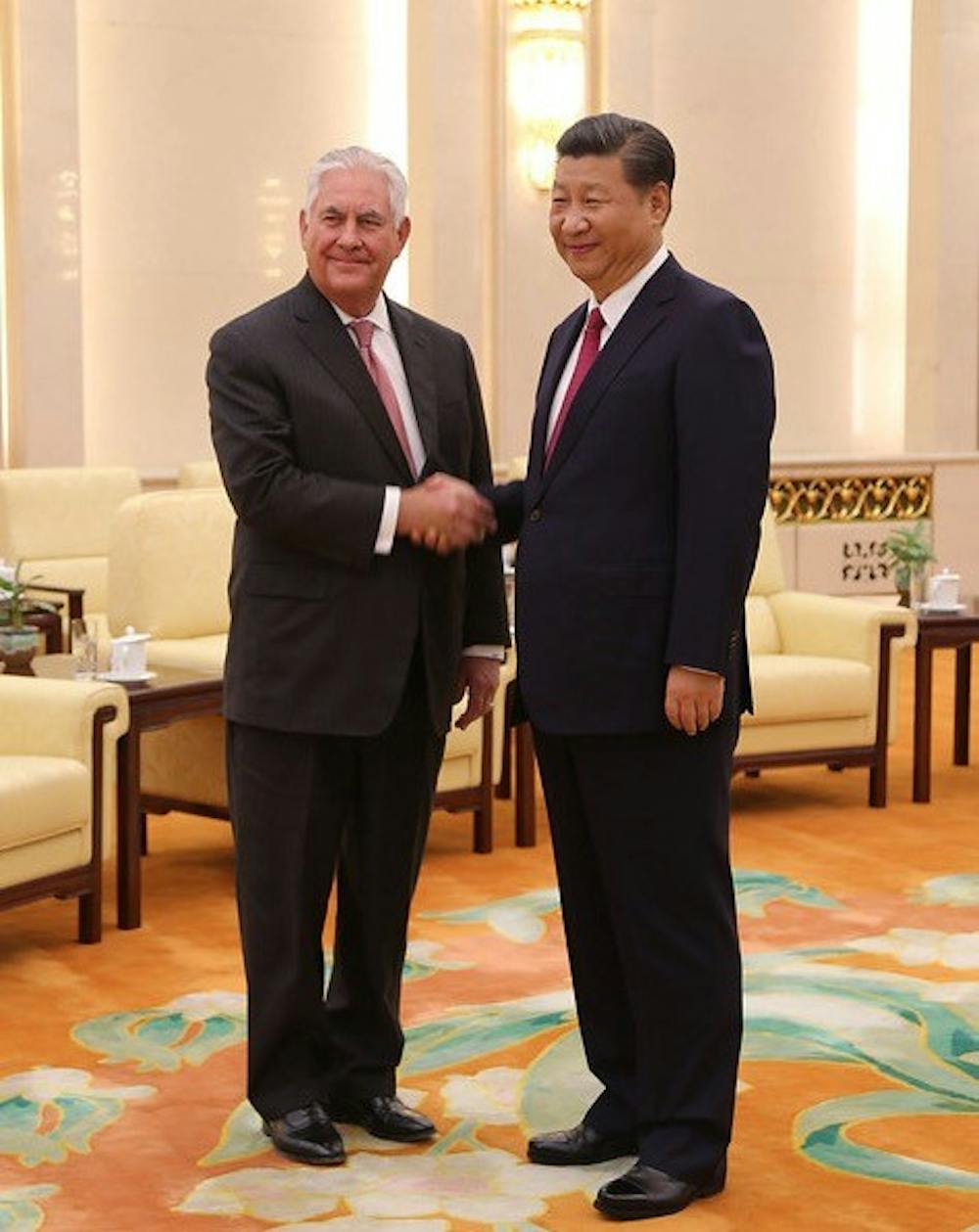Imagine that you are in a race and your opponent is a mile ahead of you. Is it possible to overtake them and win the race? It probably depends on your opponent’s capabilities and determination, your capabilities and determination and the length of the race.
That topic is the subject of Michael Pillsbury’s book, “The Hundred-Year Marathon: China’s Secret Strategy to Replace America as the Global Superpower.” I am not planning to review Pillsbury’s book here but my intent is to review capabilities, challenges and potential flashpoints in the complex relationship that shapes the competitive/cooperative race between the U.S. and China for economic leadership.
First, let’s look at the capabilities and challenges that face the U.S. today. The U.S. is indisputably the world’s dominant economy. Its free market policies, individualistic culture, historically strong work ethic and financial policies that encourage wealth accumulation have unleashed economic opportunities that make the country a magnet for people of other nations seeking to better themselves economically. Until relatively recently, U.S. immigration policies encouraged — or at least tolerated — people moving from other countries to America to establish families, build companies and invent technologies that have improved lives around the world. The transitions of immigrants have not always been easy and often involved pain and discrimination, but over time, immigrants have been a source of great long-term strength for the U.S.
However, the U.S. faces cracks in its structure. A growing sense of entitlement (“You have more than me, so I deserve what you have”) is eroding the sense that success comes from hard work using the available resources. Identity politics and cancel culture that treat dissenting opinions not just as ill-informed but as evil are eroding the art of compromise and civil discourse, promoting posturing at the expense of problem-solving. Rapidly accelerating public (and private) debt pushes current expenses down the road to be paid for by future generations if, that is, politicians can muster the will to address it. (Incidentally, this debt increase has occurred under both Republican and Democratic administrations.)
China is following a different path — not without its own challenges. When the Chinese Communist Party (CCP) took over the country in 1949, it launched a series of economic initiatives with, for 30 years, disastrous consequences. However, beginning in 1979, China embarked on a path of “reform and opening” that has transformed the country. The path is too complicated to describe here, but three key steps were: 1. the establishment of Special Economic Zones in the ‘80s (to experiment with free market capitalism in a controlled context); 2. significant devaluation of the Chinese renminbi currency in early 1993 (resulting in a huge increase in exports); and 3. entry into the World Trade Organization in 2000 (resulting in greater integration with other economies of the world).
The results have been astonishing growth. China is now the second largest country as measured by gross domestic product (GDP) with strong growth over a 40-year period. On April 12, China announced that it had achieved 2.3% growth in 2020 (low by Chinese standards but the only major economy to show positive growth in 2020), and Fortune magazine projects that the Chinese economy could overtake the U.S. economy by 2026. (Because China’s population is more than four times that of the U.S., the GDP per capita is much lower.) China holds $3.4 trillion in foreign currency reserves, allowing it to splash money around the globe in its Belt and Road Initiative. China’s growing economic and political clout is evident in investments across Asia, Africa, Latin America and Europe.
However, China is not without significant challenges. China’s sometimes heavy-handed relationships with neighbors (Vietnam, Philippines, India, Japan and South Korea) have created regional tensions and pushback. Disputes over trade and human rights issues have increased tensions with other countries whose economies are intertwined with China’s — the U.S., Australia, European Union, etc. China’s demographic “bomb,” where a decreasing number of young workers are available to build the economy and support a large number of older citizens, sees no obvious solution. Recent government actions to require businesses to make decisions that are politically — rather than economically — beneficial may stifle private entrepreneurial endeavors.
Let’s return to the analogy of the race that I referenced at the beginning of the article. Imagine that as the two lead runners sprint toward the finish line, they begin not only running but also hitting one another with clubs. As China and the U.S. vie for influence and leadership, there are several areas of concern for potential miscalculation that could lead to disastrous consequences. These potential miscalculations involve areas of disagreement over Taiwan, Hong Kong, Tibet, Xinjiang and sovereignty issues over disputed areas in the East and South China seas. Misjudgement could lead to military conflict.
In closing, I want to take a big step back and look at China’s role in the world, not from a temporal perspective but from an eternal perspective. The Roman Empire of the early days of Christianity played an unintended role in the spread of the gospel. The Byzantine Empire, European colonialism and American expansionism all played unintended roles in the expansion of God’s Kingdom. Perhaps, and I would say probably, China will also play a role in the final chapter of taking the gospel to the ends of the earth.
So who will win? In the temporal world, I’m not sure. But I am confident that eternity will reveal God’s hand at work across history, including in the current race for economic supremacy.



